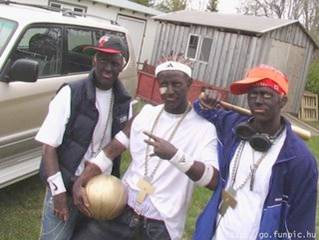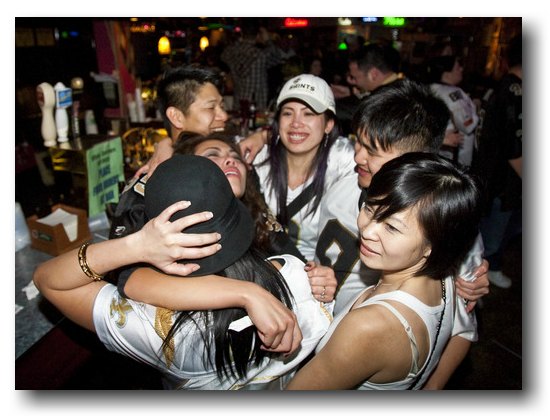Earlier this week, musician, actor, and community activist Harry Connick Jr. was a guest judge on the Australian talent show Hey Hey It’s Saturday. One of the acts was a skit featuring a group of White men wearing blackface (using dark-colored makeup to appear racially Black), doing an impression of the Jackson Five. As ABC News reports and this video segment shows, Connick’s reaction to their performance was swift and sharp:
[Connick] was visibly shocked by the skit, in which [five] men with afro wigs and blackface sang and danced behind a Michael Jackson impersonator wearing white makeup. Connick, 42, gave the performance a zero score and told them that if it had been done in the United States it would have been pulled off the air.
Blackface was a traditional trope of minstrel shows in the U.S. that dates to the 19th century. Whites playing stock black characters — usually offensive stereotypes meant to demean — rubbed coal, grease or shoe polish on their faces. . . .
Public reaction to the “Hey Hey” performance in online forums was mixed. Some Australians said they were embarrassed such a racist sketch had been broadcast, while others said detractors were too politically correct and that the skit was funny. . . . Anand Deva, the frontman of the “Jackson Jive” act, said it was not meant to cause offense but added he would not have performed it in the United States.

There are two interesting sociological points to note here. The first is the apparent differences in racial attitudes between the U.S. and Australia. That is, even though many Americans still are rather ignorant of the racial significance and racist legacy of blackface and still wear it from time to time (especially around this time of year, Halloween, as seen in the photo on the right), for the most part, I will presume that most Americans understand that blackface is offensive (or at least the reactions and criticisms to it are much more intense).
With that in mind, it is notable to see that in Australia, this sensitivity and recognition of blackface do not exist to the same level. In fact, despite the Australian government’s recent official apology to the aborigine population for centuries of racism, in general the racial attitudes of the Australian public seem to be a few decades behind that of the U.S. in terms of racial understanding.
This diminished level of cultural knowledge comes through in the responses by Anand Deva in defending his group’s skit with the usual refrain, “It wasn’t meant to be offensive, it was just a joke.” What he and other Australians do defend the skit don’t understand is that whatever the intent, the result was that it definitely came across as racist and offensive.
Secondly, the reason why they don’t understand why it was offensive is because as Whites in a White majority society, they have the position of being able to make fun of non-Whites while claiming that they did not intend it to be offensive. That, my friends, is the quintessential definition of White privilege.
As it relates back to Harry Connick Jr., as the video segment notes, he has been accused of being hypocritical because he participated in a previous comedy skit (apparently from MadTV) in which he played some kind of witch or voodoo doctor that some argue also makes fun of Blacks, although Connick counters that his character in the skit was actually White.
Despite this criticism of Connick, I give him credit for speaking up in the moment and denouncing the skit as racist and offensive. It takes courage to recognize such racial ignorance first of all, and second, to speak up and stand in opposition to it, rather than just keeping quiet, as many Americans from any racial background but particularly Whites, are more likely to do.
I know that as a native of New Orleans, Connick was affected by how his city and particularly the Black community were both devastated after Hurricane Katrina. In the aftermath of the disaster, he organized several benefits and other activities to begin rebuilding the city and its inhabitants.
At this point, I can only speculate, but I suspect that as a result of Hurricane Katrina and perhaps after understanding the cultural consequences of such media portrayals as his MadTV skit, he “got it” — that as an affluent entertainer and as a White person, he is very privileged person and has a lot of power and influence that can be used to make fun of people, or to help uplift them.
In other words, Connick’s actions — in the wake of Hurricane Katrina and in regard to this blackface skit — are a great illustration of what I tell me students all the time: for racism to continue, individual Whites like you (referring to my students) do not have to commit racist acts yourself. Instead, for it to continue year after year, generation after generation, all you have to do is to sit by and accept the consequences of discrimination committed against others.
In other words, silence equals acceptance.



